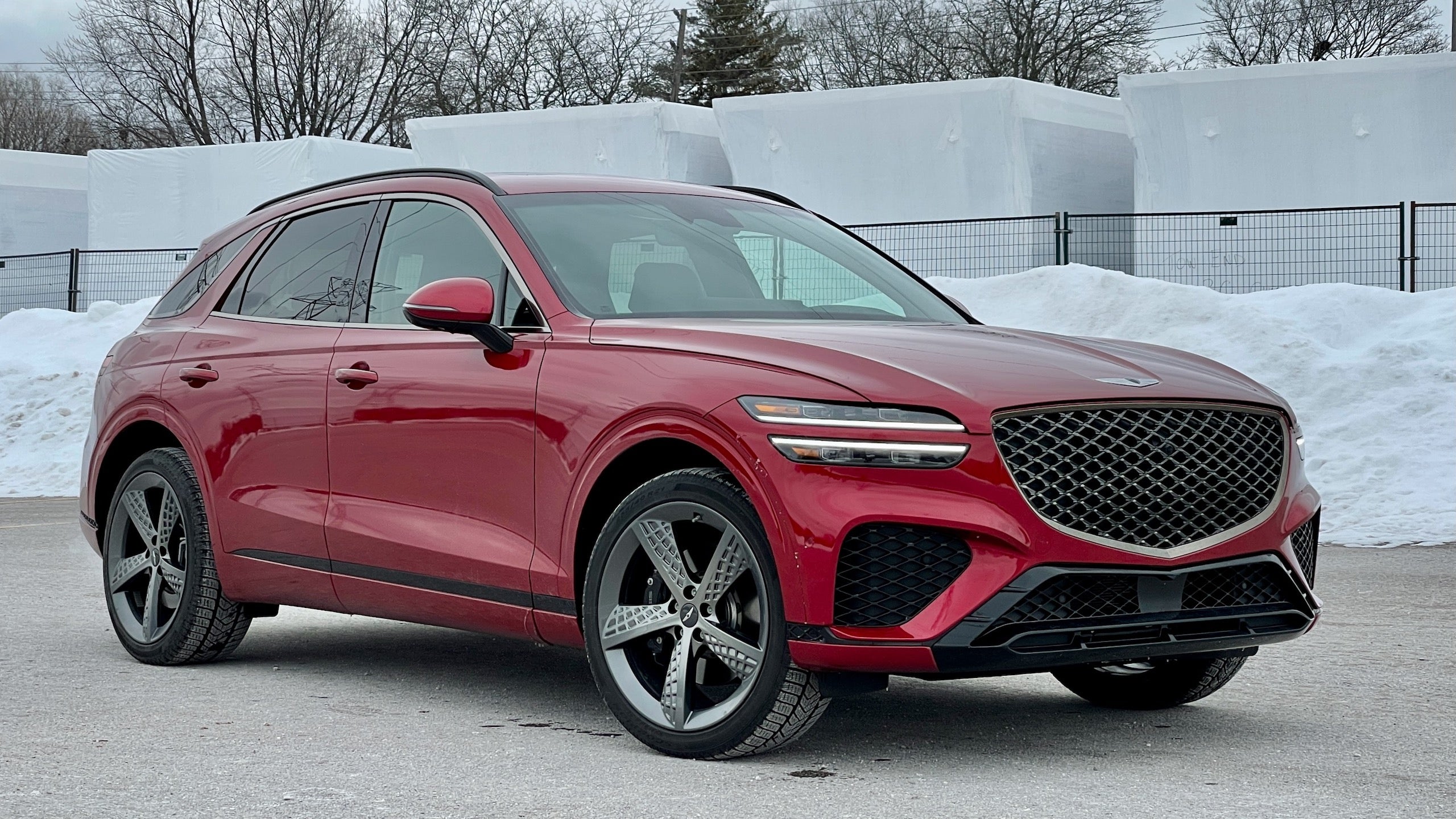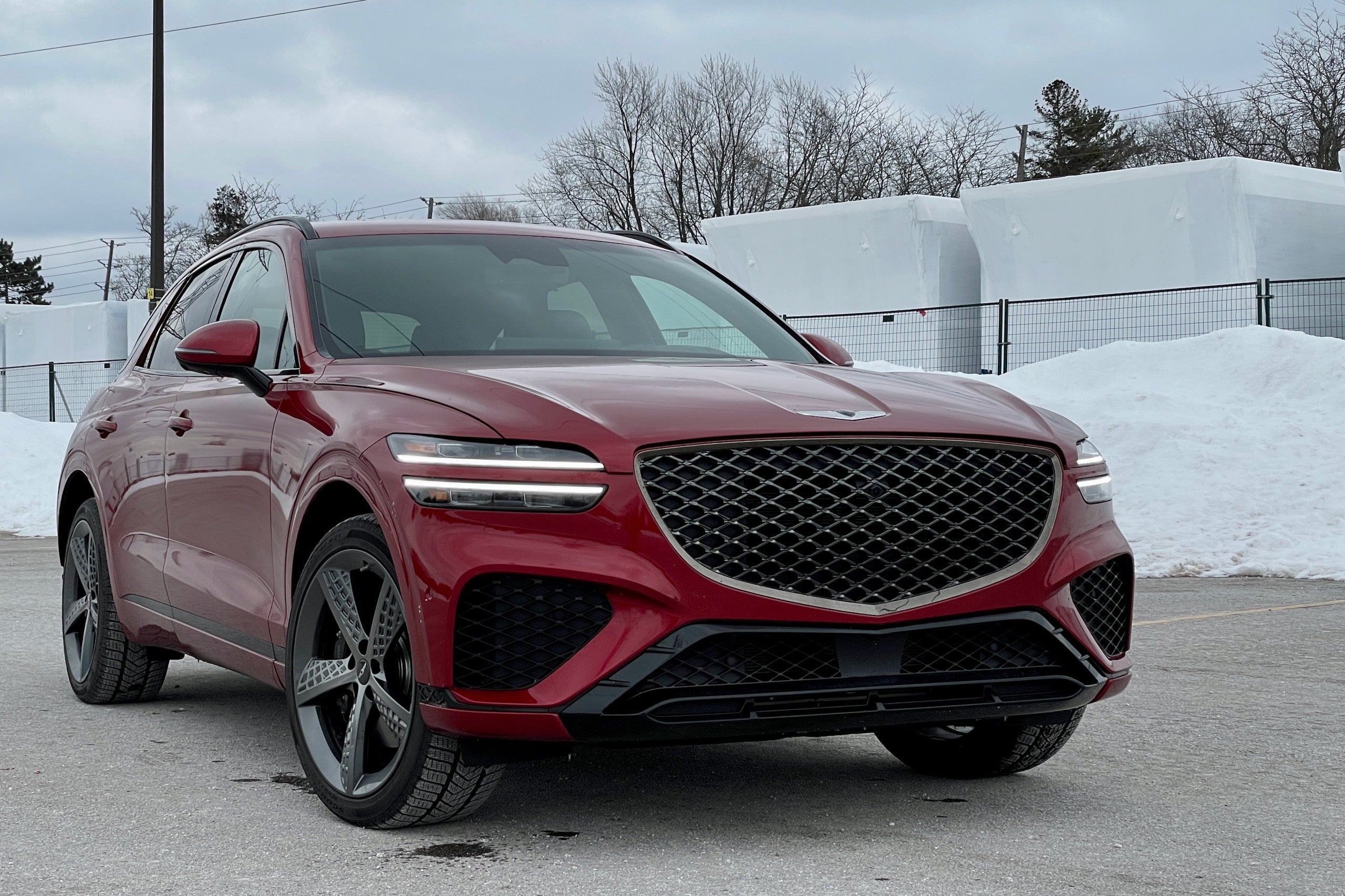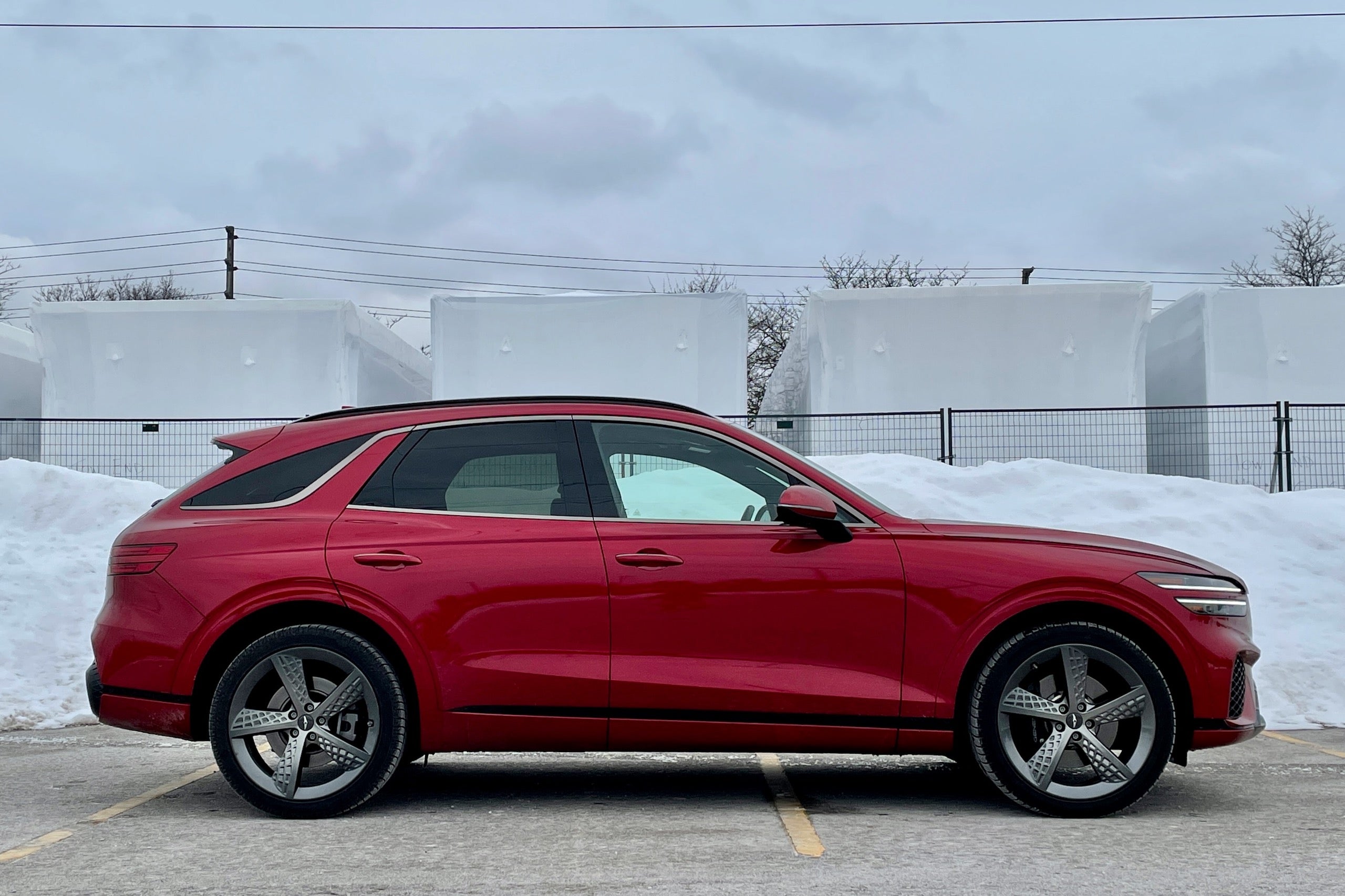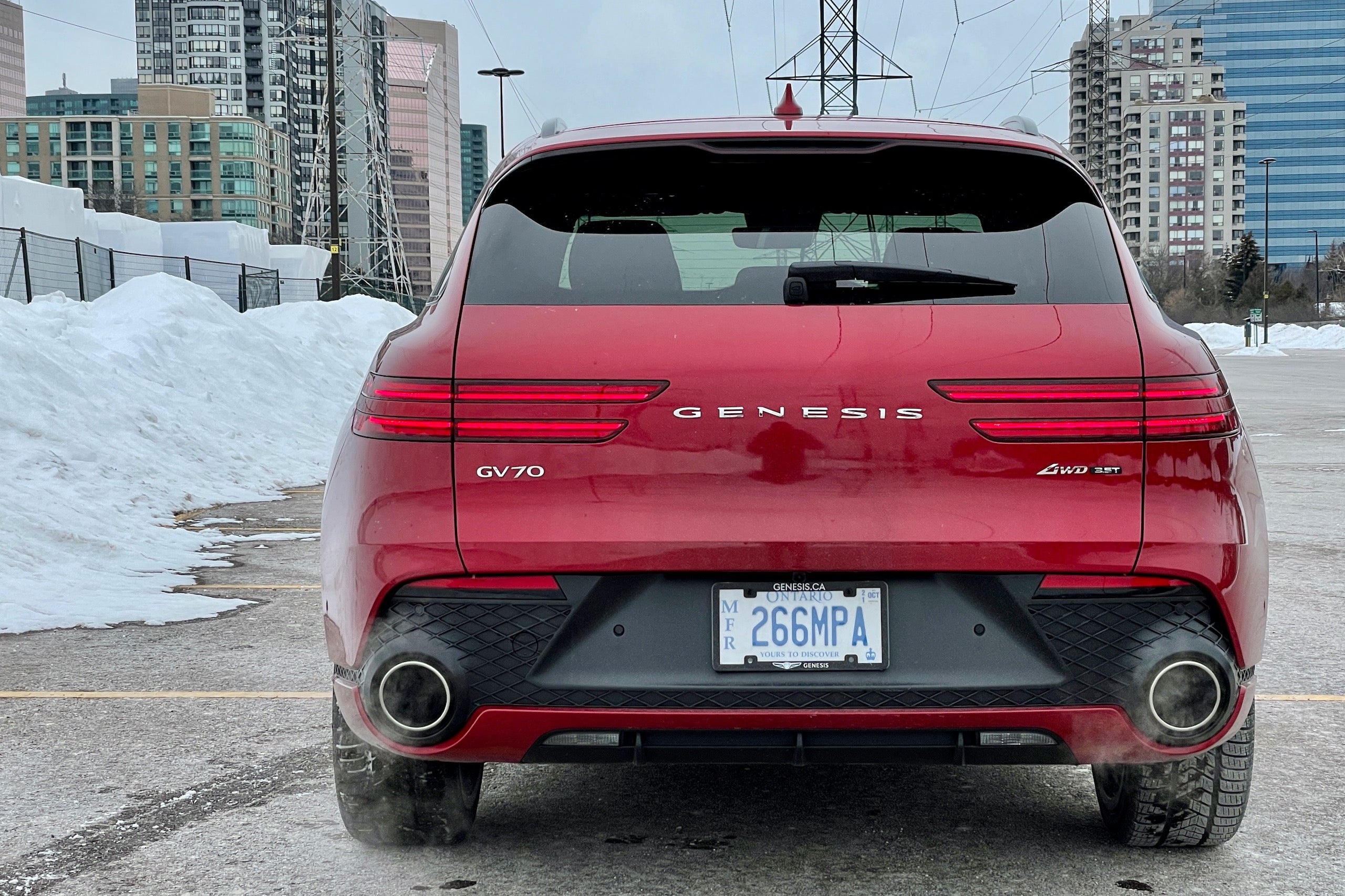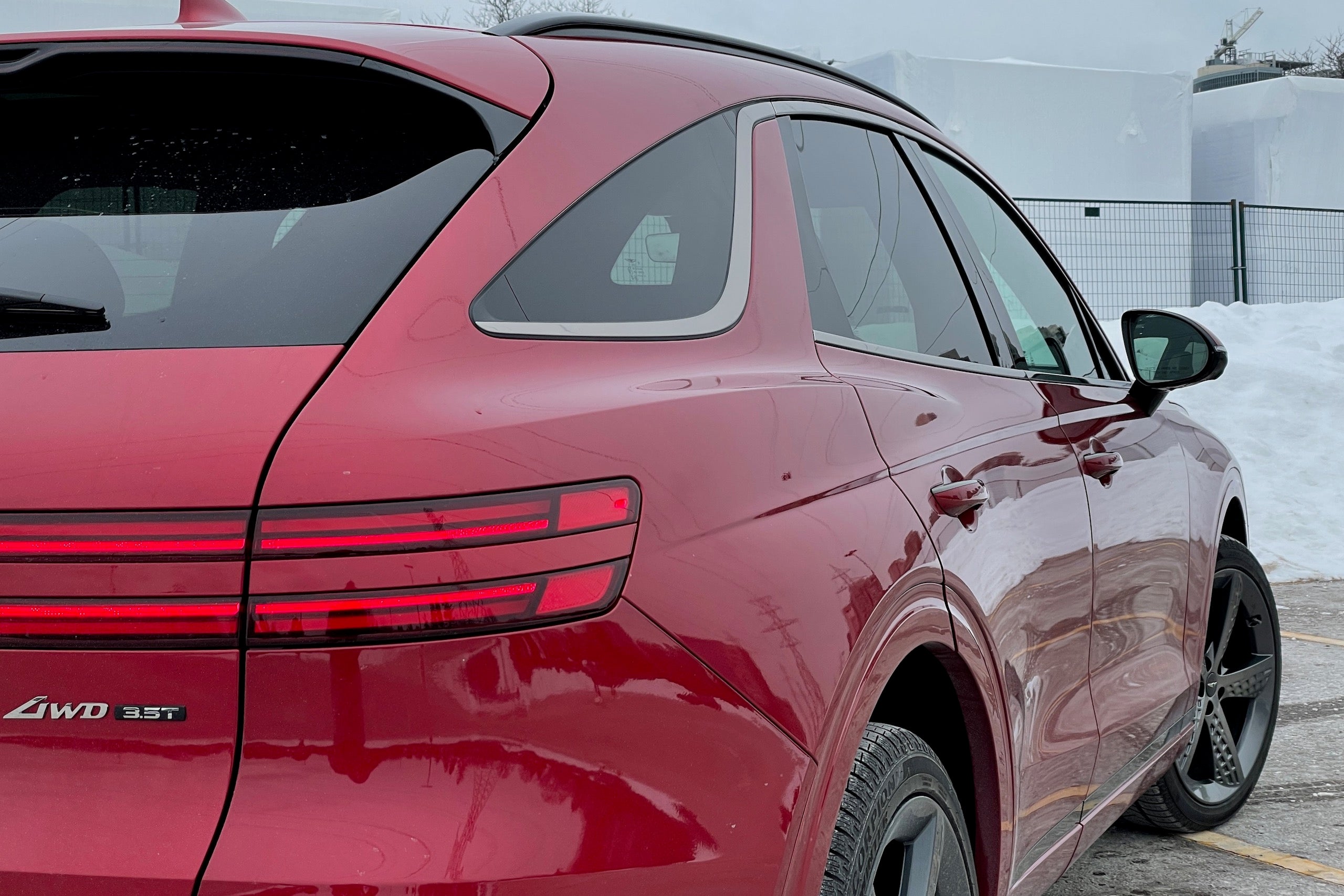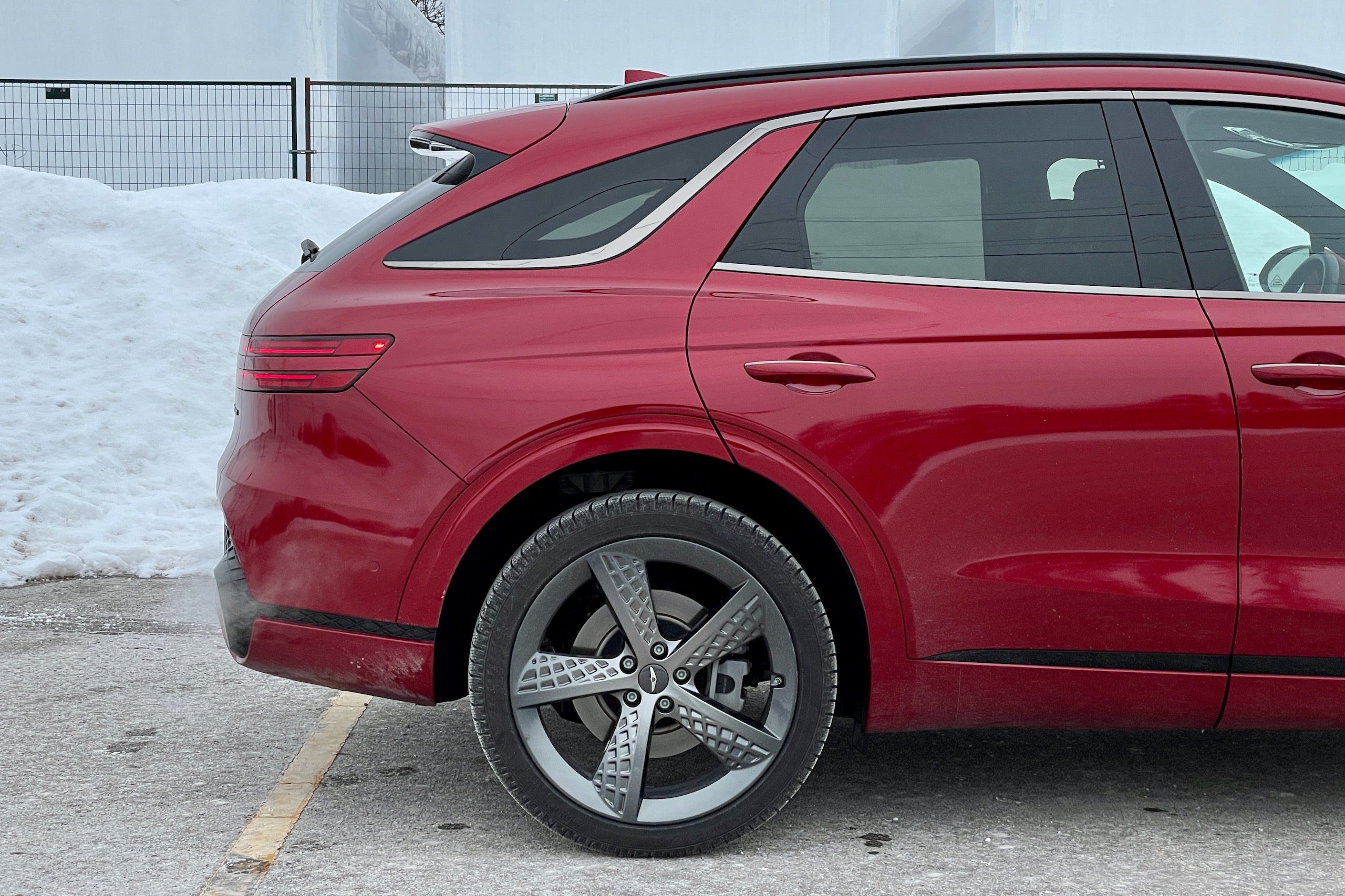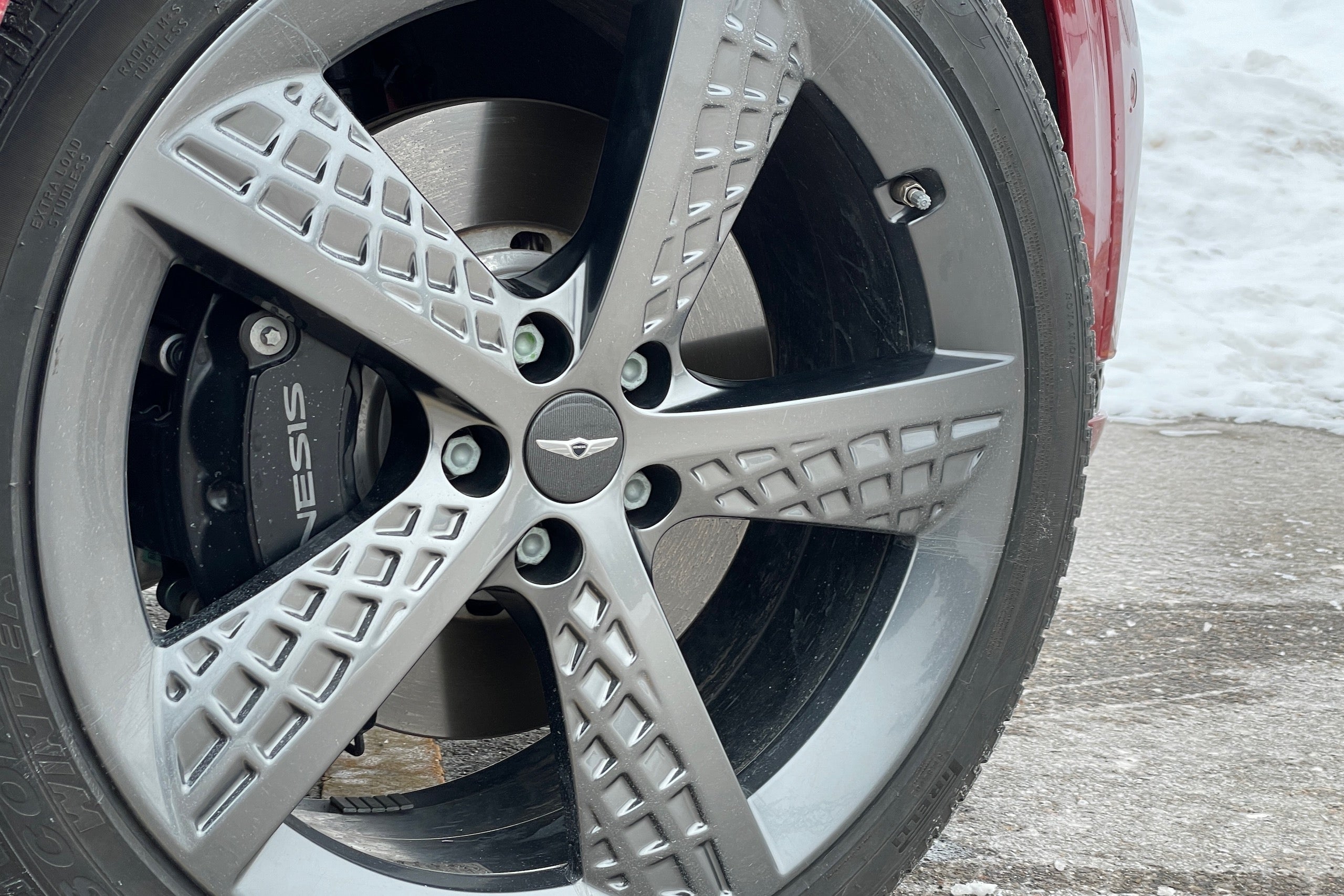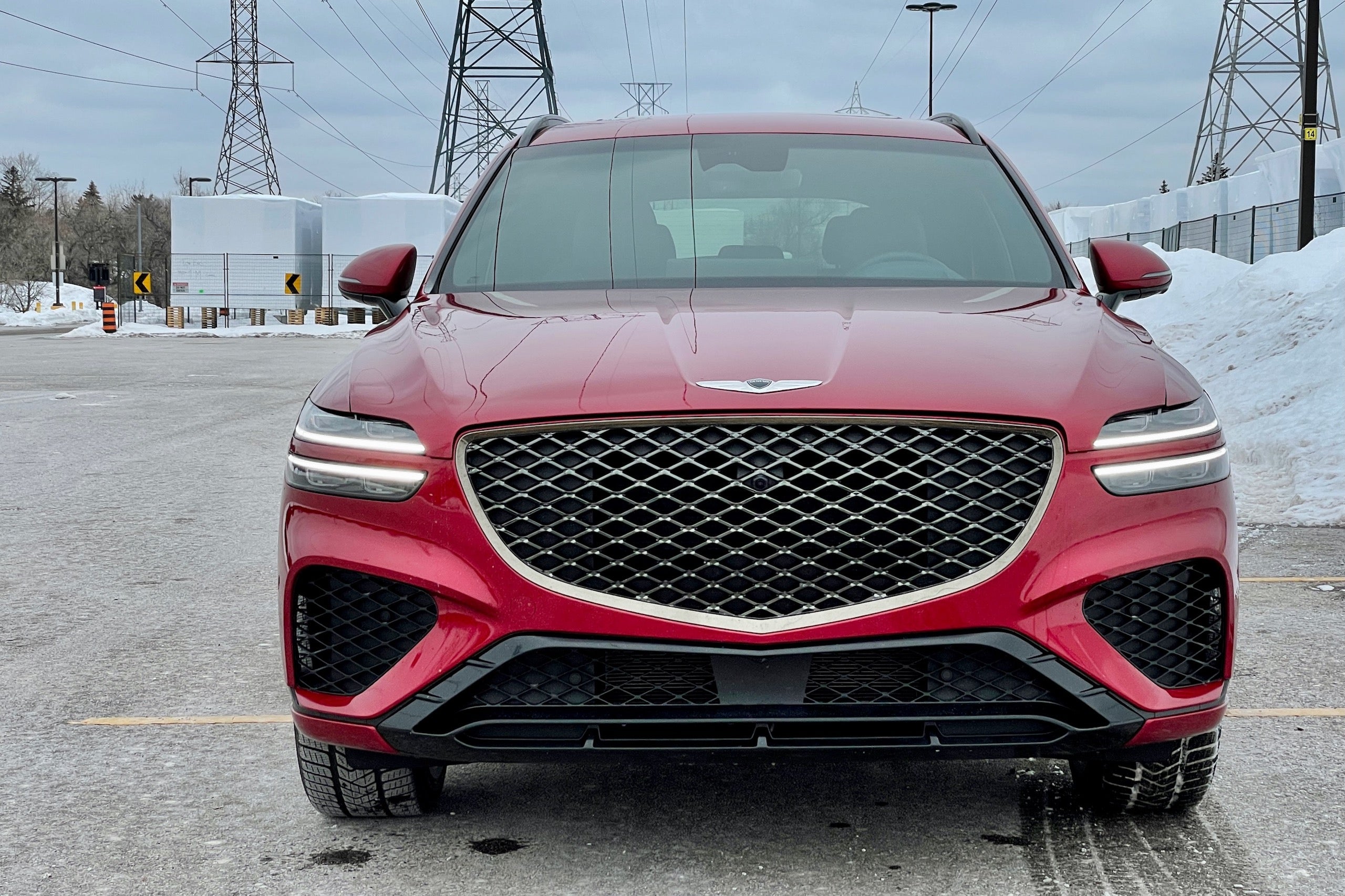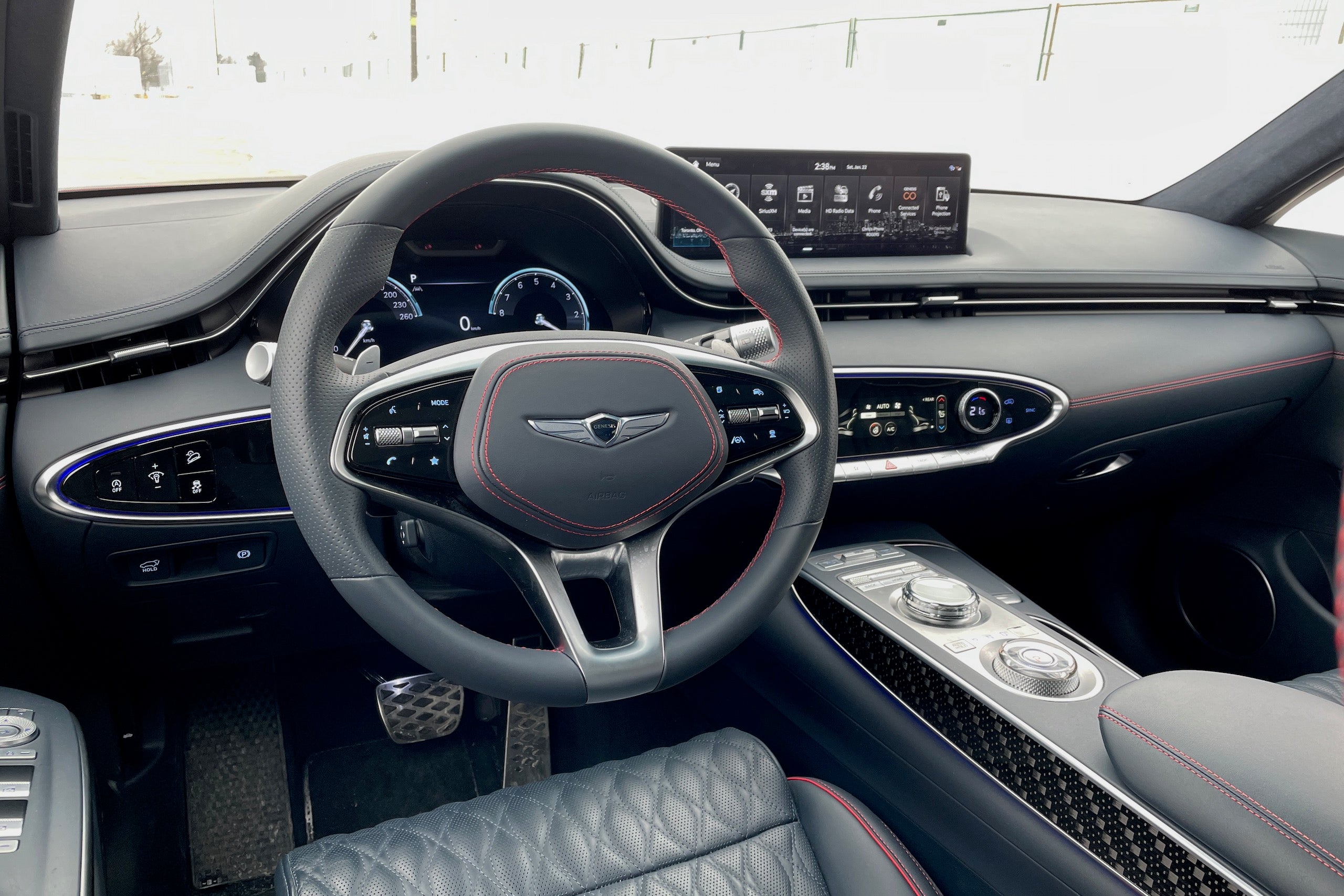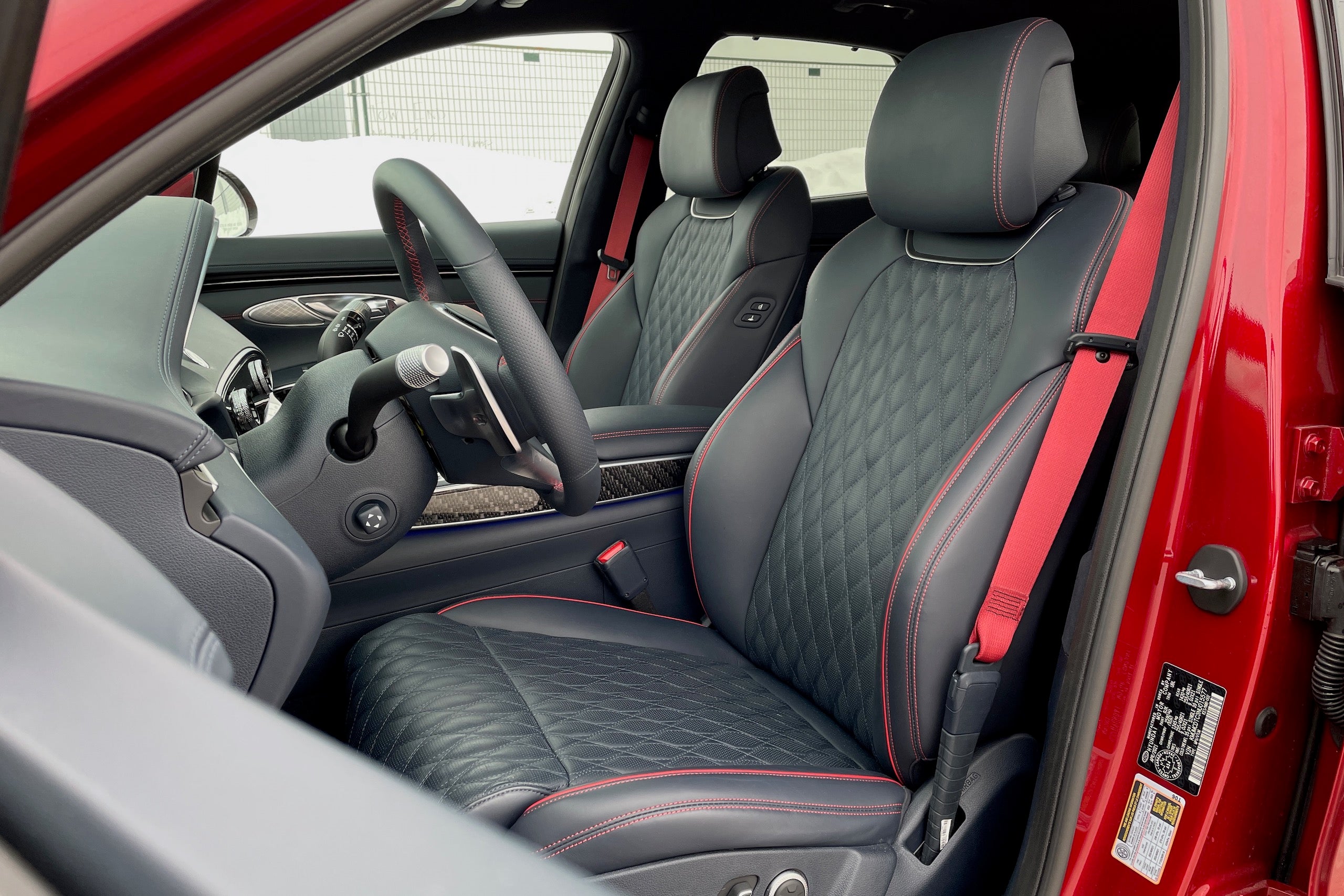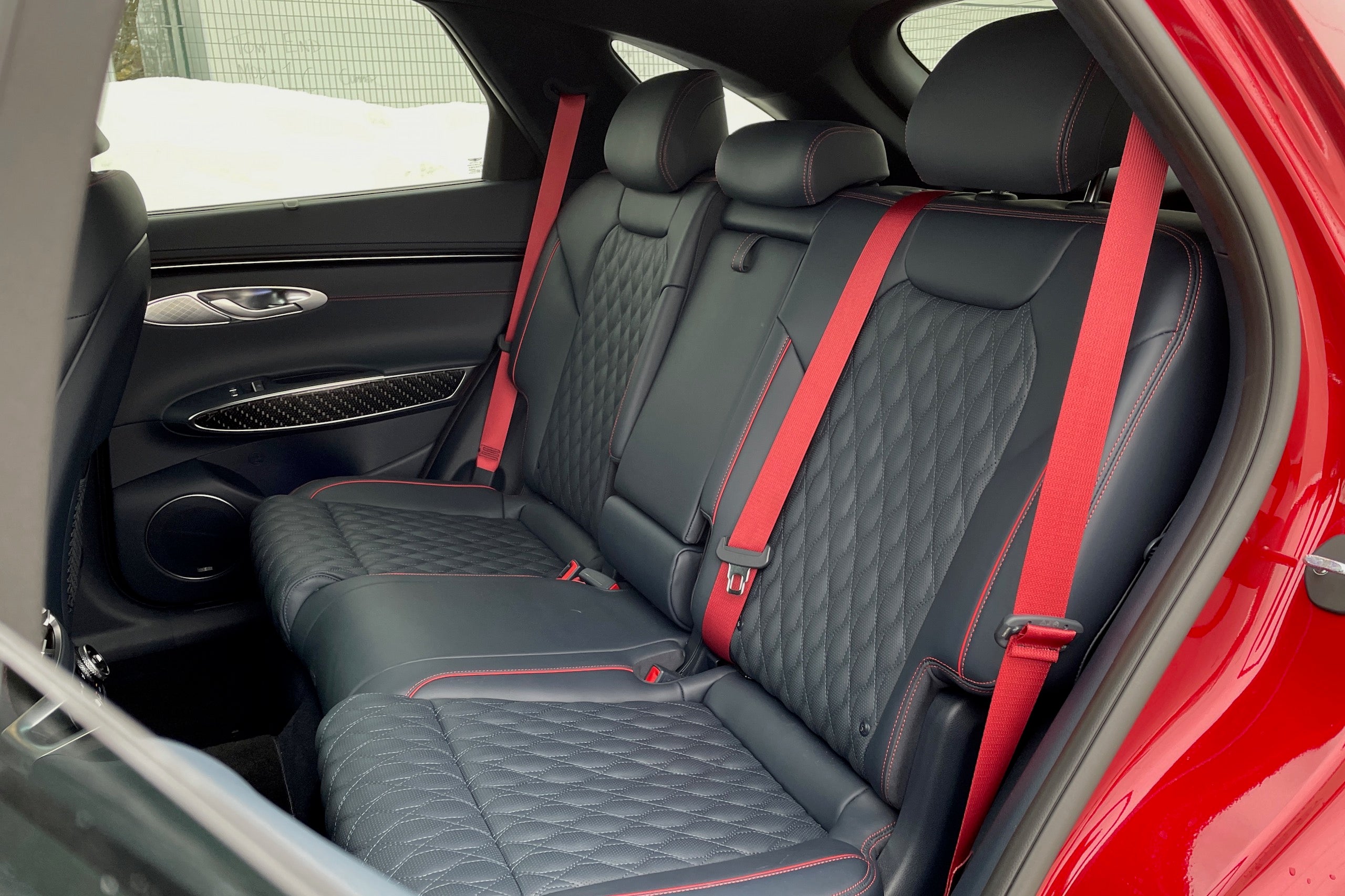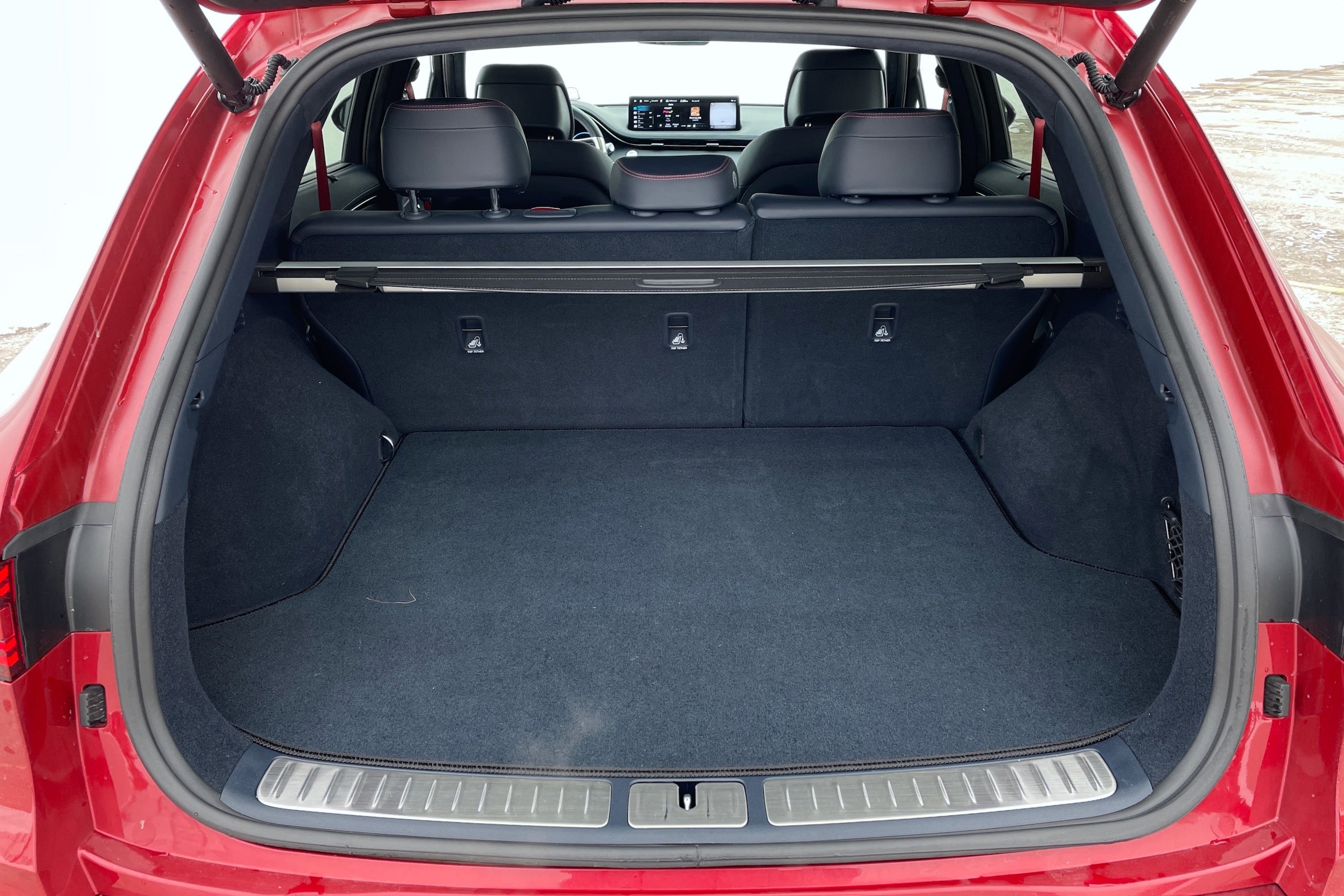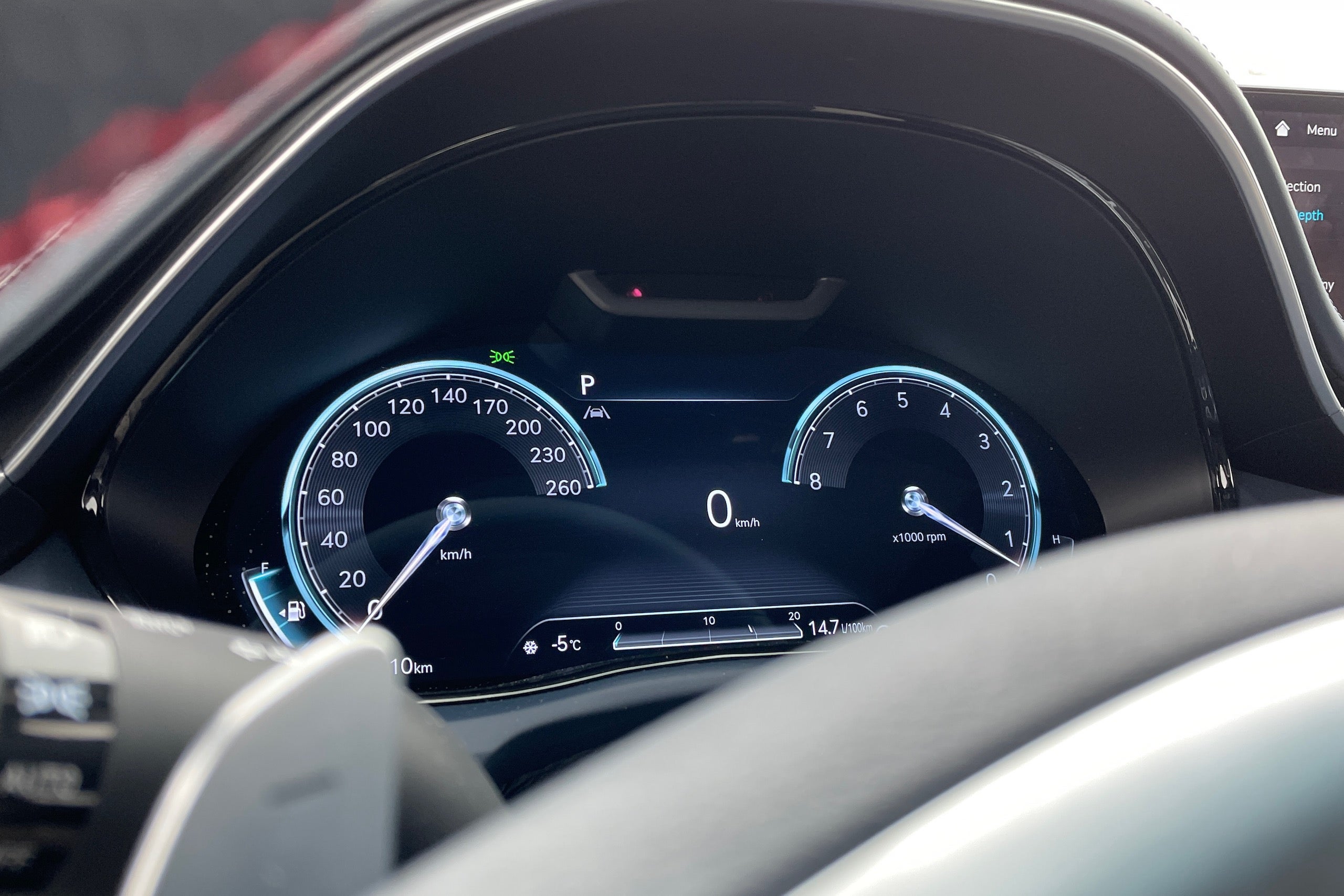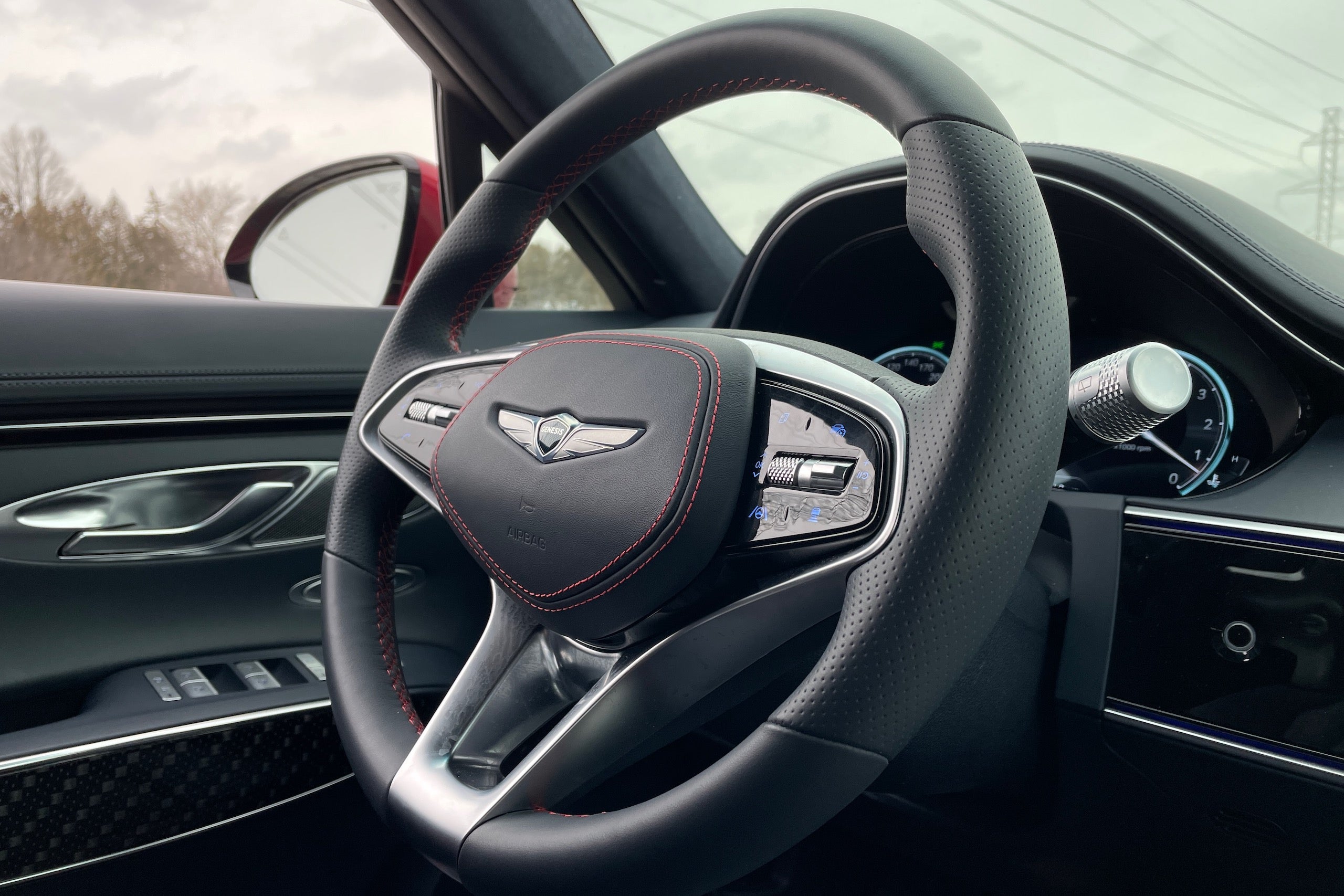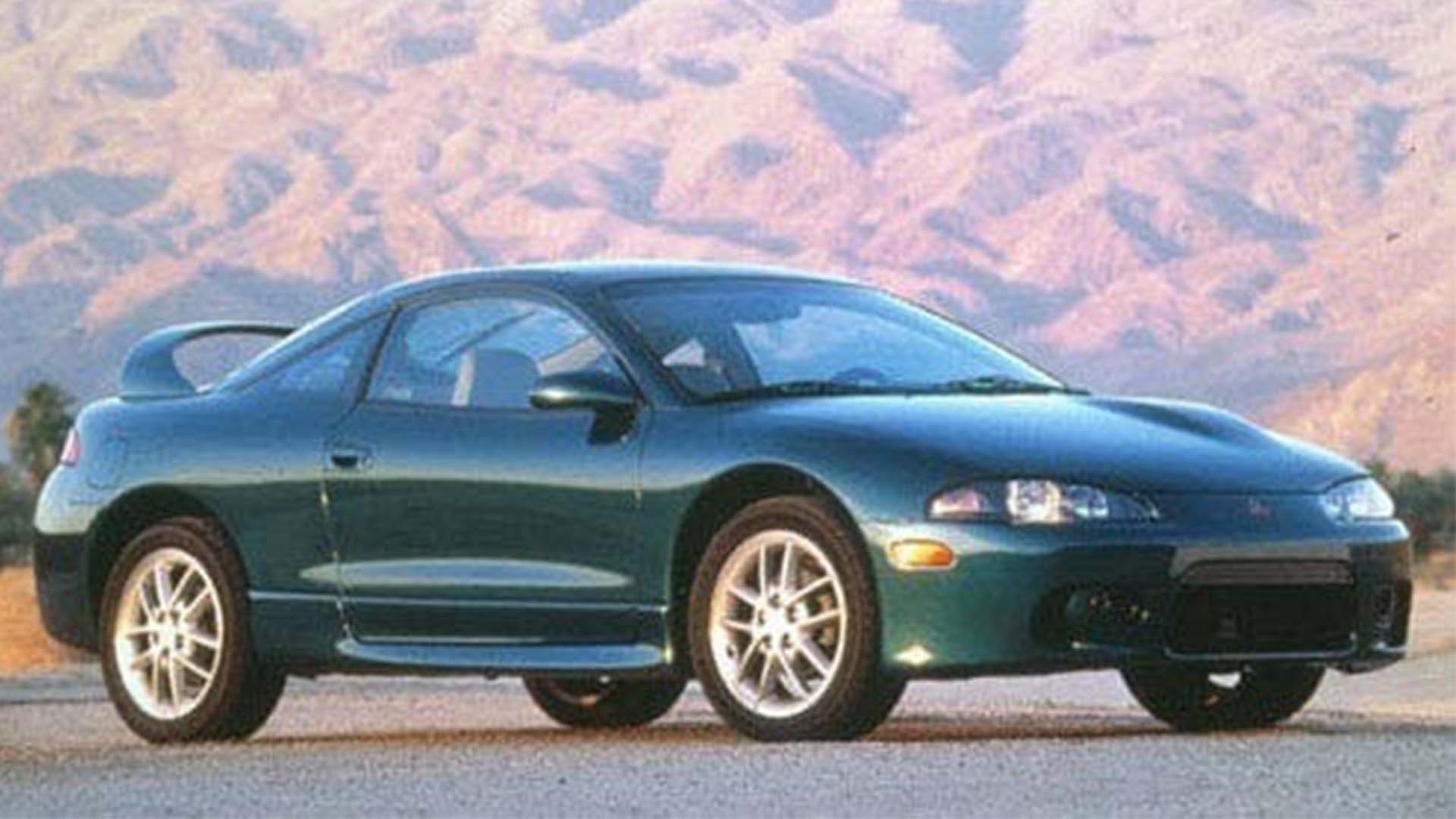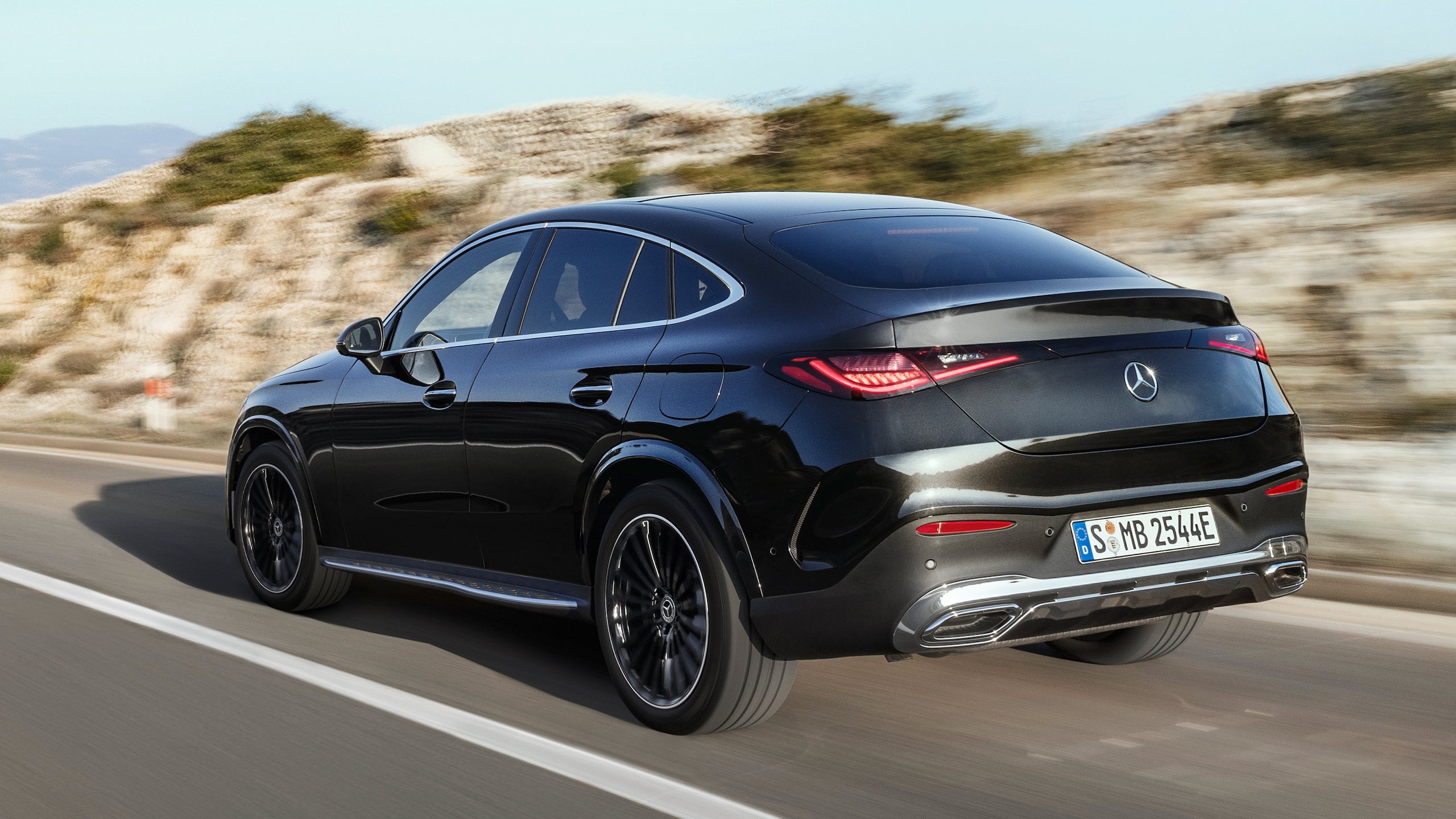Here's a take that shouldn't raise any eyebrows unless you've been asleep for the past five or so years: Genesis, Hyundai's luxury arm, does not make a bad car. The stylishly great G70 is, well, stylish and great. The big boi GV80 is fantastically luxurious. And the mid-size G80 sedan is, shocker, more of the same. It should come as zero surprise, then, that the 2022 Genesis GV70, the brand's first compact crossover, is gorgeously designed, really well-thought-out, and appreciably nice to drive.
This is good because the GV70 is a massively important vehicle for the still-budding brand. Crossovers outselling and, in turn, being more important to an automaker's bottom line than sedans is no longer news. But within the crossover segment itself, it's the less expensive, more compact one that'll likely be responsible for converting younger buyers. Younger buyers who: may not have enough coin yet for (or have a family big enough to warrant) the GV80; don't have a deeply established preference for Mercs, Bimmers, or Audis; or are inherently more willing to experiment with a relatively new, upstart brand like Genesis.
These are the buyers Genesis would undoubtedly like to woo and, subsequently, build a lifelong relationship with. Because as anybody who has seen The Office knows, it's always easier and cheaper to sign an existing customer than it is to acquire a new one. (It's approximately 10 times more expensive, if Ryan's business school expertise is any sort of believable.) For those theoretical first-time luxury buyers, the GV70 offers a beautiful, competent package that's hard to argue against.
2022 Genesis GV70 Specs
- Base price (Sport Touring as tested): $52,600 ($64,045)
- Powertrain: 3.5-liter twin-turbo V6 | 8-speed automatic | all-wheel drive
- Horsepower: 375 @ 5,800 rpm
- Torque: 391 lb-ft @ 1,300 to 4,500 rpm
- Curb weight: 4,541 pounds
- Seating capacity: 5
- Towing capacity: 3,500 pounds
- Cargo volume: 28.9 cubic feet
- EPA fuel economy: 19 mpg city | 25 highway | 21 combined
- Quick take: Like pretty much every other Genesis these days, the GV70 is dripping with style, on-road competence, and easy-to-use tech, giving the established players a serious run for their moolah.
- Score: 8.5/10
The Basics
The GV70 is Genesis' second-ever crossover, a follow-up and a compact underling to the fantastic mid-size GV80 that came before it. Naturally, it'll also slot above the upcoming electric-only GV60, at least in terms of size. GV70 also happens to share a platform with the G70 compact sedan (and, transitively, the Kia Stinger).
Like that GV80, the GV70's exterior design oozes Budget Bentley Energy in its ornate details but combines them with a smaller, more squat Porsche Macan-like shape. While we're aesthetically comparing it to Porsches, that whole C/D-pillar design has often been compared to that of the 928, which is never a bad thing. I love the spider web wheels, I love that the body very much looks wider than it is tall, and I love the big exhaust tips on this 3.5T model that could probably envelop a fist and would not look out of place on the back of a hot hatch. I even love the hood that artfully does not line up completely with the rest of the body when closed, giving the whole thing a hand-crafted, artisanal, concept-car feel. Looks are, of course, subjective but if you ask me, this is easily one of the best-looking crossovers in its class.
Hopping inside, the GV70's innards are just as sumptuous and interesting as its exterior. Uninterrupted silver trim spans the entire cabin, even arching its way up and above the gauge cluster. Speaking of gauges, Genesis' now-ubiquitous (but optional) 3D instrumentation is a little gimmicky, sure, but cool nonetheless. As for the rest of the cabin, the oval motif is unique and the glass-and-metal-look infotainment and gear shift knobs look fancy as heck, as do the cross-hatch pedals. It's all laced with reasonably decadent materials, too, such as soft plastic, stitched leather, cold, polished, alloy surfaces, and fuzzy suede on the headliner (even the retractable sunshade for the panoramic roof is made of the stuff).
Underneath the tester's deliberately ill-fitting hood sits a 3.5-liter twin-turbo V6 making 375 horsepower and 391 pound-feet of torque. Power is sent to all four wheels through an eight-speed automatic transmission, letting the GV70 tow up to 3,500 pounds. For those okay with less grunt, this car is also available with a 2.5-liter turbo-four making 300 hp and 311 lb-ft of torque.
Driving the Genesis GV70
Behind the wheel, the GV70 feels pretty great to drive. Smooth on the highway and easy to place around town, it's comfortable and stable in pretty much all everyday situations while its inputs are reasonably precise and intuitive. Among those in the know, Genesis is quickly building a reputation for crafting cars that feel less insulated and more involved than its rivals; this carries over to the GV70. No, it isn't as ruthlessly quick or grippy as the BMW X3 M40i but it operates with a less robotic and more analog quality that makes it subjectively more enjoyable. Ergo, that also makes it a league-and-a-half above the new Lexus NX when it comes to road feel and handling.
Steering is expertly judged for a vehicle of this type—ditto for the brake pedal—and the whole thing is reasonably satisfying to hustle around corners. In fact, the GV70 drives a whole lot like a Stinger SUV, not all that surprising given it's built on the same chassis. It's balanced, peppy, and even has the same seat bolsters that tighten inwards in Sport mode (and whenever you exceed 80 mph, regardless of drive mode). Here, the driver's seat bottom even lowers slightly, giving you a marginally more hunkered-down feel.
That turbocharged, 391 lb-ft of torque is considerable and comes in mighty early—1,300 rpm to be exact, which is, like, cold-start idle in some cars—and can be felt by how eagerly this thing gets up to highway speeds with just light prods of the gas. It's not going to prompt you to roll the window down inside tunnels anytime soon but the GV70's V6 also sounds alright for what it is. It's not as aurally pleasant as the competing BMW's straight-six but it's strong-sounding, fairly mechanical, and sonorous.
As it happens, I got to drive this car the same week southern Ontario was hit by a monumental snowstorm (even by southern Canada standards). With its all-wheel drive, snow mode, and Pirelli Scorpion Winter tires, the GV70 navigated the aftermath fairly competently, although I suspect it's the latter that was doing the heavy lifting.
The Highs and Lows
As swanky and beautiful as the GV70's interior is to behold, its visual appeal has not come at the cost of usability because the cabin is fairly easy to navigate. Just like it was in the GV80, the ultra-wide, 14.5-inch infotainment screen is big, vibrant, and sharp. It is indeed a touchscreen, of course, but can also be controlled by the glass-and-chrome wheel that doubles as a D-pad, located fore of the gearshift dial. It's not a bad input device at all, which is good because Genesis has placed the touchscreen deliberately far away, basically impossible to reach without leaning forward in your seat. After living with it for a while, I've decided that this is actually a good thing, as it discourages touchscreen use while driving. Those seats, meanwhile, are really comfortable and nicely fitted to the body. The headrests, in particular, fit perfectly against the back of my neck while the seat bottoms—a point of contention I had with the GV80—remained comfortable even on long drives.
It isn't perfect, though. Apple CarPlay works fine but the connection is wired when it really should be wireless at this price and point in time. The knobs controlling HVAC temperature remind me of the ones in the Lexus NX in that their movements don't feel nearly as good as they ought to while every other air-related control is indeed touch-sensitive. As for audio controls, there is a physical way to control the volume but instead of a traditional knob, it is a horizontally laid Mercedes-style scroll wheel that's small and a little hard to use without accidentally pushing down and muting everything.
Genesis GV70 Features, Options, and Competition
In the U.S., the $52,600 GV70 AWD 3.5T comes standard with Genesis' full suite of ADAS (which work as advertised and more naturally than most competing systems), a pano roof, heated and ventilated front seats, the full 14.5-inch screen, wireless charging, and a fingerprint reader which maps your fingerprint with your settings—a world-first innovation that should be helpful for multiple-driver households. Add $5,000 for the Sport Advanced package and you get quilted Nappa leather, ambient lighting, a heated steering wheel, a 360-degree camera system with Smart Park and parking sensors, as well as a 16-speaker Lexicon audio system that sounds really very good. Pony up another $4,900 for the Sport Prestige pack, however, and you'll unlock the 21-inch wheels, an electronic limited-slip differential, suede seat inserts, carbon-fiber interior trim, three-zone climate with heated rear seats, and that nifty 12.3-inch 3D instrument cluster with a head-up display. All in all, the car you're looking at would warrant an invoice of $64,045 after destination in the U.S.
Playing in one of the most popular and competitive segments in the luxury car arena, the GV70 has a mightily extensive rogues gallery of competitors. The list includes the BMW X3, Mercedes-Benz GLC, Audi Q5, Porsche Macan, Lexus NX, Acura RDX, Alfa Romeo Stelvio, Infiniti QX50, Jaguar E-Pace, Cadillac XT5, Lincoln Corsair, and, of course, the Volvo Charli XCX60. Told you there was a lot of 'em. Having personally driven the Bimmer, Benz, Lexus, and Volvo, I can quite confidently say that the GV70 ranks among the top of its segment. It feels less sterile than the X3, is more stylish than the GLC, drives better than the Lex, and boasts generally better tech than the Volvo.
Sustainability
Par for the modern car course, the GV70 features an Eco driving mode that dulls the throttle response, alters shift points, and cuts back on air conditioning to improve fuel economy. A start-stop system also saves fuel by turning off the engine when the car isn't moving. As far as start-stop systems go, this one isn't terrible but could stand to be improved. Automated stops are smooth and unobtrusive but restarts of the engine could be quicker and more refined. There is a way of finessing the brake pedal so it doesn't do this but, if you're stopped on a hill, the car does roll backward slightly in the brief time between the brake being released and the power reengaging. Not ideal.
According to the EPA, the 3.5-liter GV70 is rated for 19 mpg in the city, 25 on the highway, and 21 combined. After precisely 425 mixed test miles, I logged a not-that-great 18 mpg but, to be fair, those numbers are pretty standard in this segment. This is, at the end of the day, a high-riding AWD luxury car with nearly 400 hp, and owners should expect it to drink its premium fuel accordingly. However, Genesis has confirmed that a fully electric GV70 is coming soon so if you like this car but not what it does to the environment, maybe hold out for that one instead.
Value and Verdict
If you're looking to go into Genesis GV70 ownership hoping to save big bucks over going with one of its more established, German rivals, prepare to be mildly disappointed. While this top-trim, fully loaded car's $64,045 as-tested price is indeed lower than a comparably equipped X3 M40i or a similar GLC 43, the gulf isn't as big as you think it is. A quick trip to each of those makes' configurators reveals that a similarly specced BMW came out to about $66,000, while a comparable Mercedes will cost around $70,000. Converted into monthly lease payments (which I'd be willing to bet is how most folks are actually acquiring these cars), the difference is even less noticeable.
But it's not like you're getting significantly less car by going with the Genesis. Fixing perhaps the only major flaw I found with the GV80 (hard seat bottoms), the GV70, just like every other car in the Genesis catalog, is a pretty stellar motor vehicle. It's really nice to drive, it's elegantly designed on the outside and in, it's practical, and—unlike many of its rivals—cannot be spotted in bulk absolutely everywhere. The Genesis GV70 is one of the most competent blends of comfort, athleticism, technology, and outright luxury out there and, most tellingly perhaps, one of the only crossovers I found myself wishing I could keep driving after I gave it back.
Got a tip or question for the author about the GV70? You can reach him here: [email protected].
